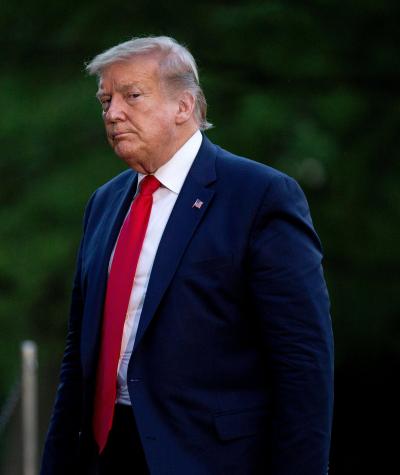As President Donald Trump demanded vote recounts and filed lawsuits across the country to challenge the results of the 2020 presidential election, he raised millions of dollars to help finance his efforts. But he ultimately spent several million dollars that he raised during this period on something completely unrelated, and his actions illustrate the need for clearer regulatory oversight.
In closely contested elections, candidates sometimes pursue a recount or other post-election challenge, which often involves expensive vote-counting costs and legal fees. To defray these costs, the Federal Election Commission (FEC) — the agency responsible for administering and implementing our federal campaign finance laws — allows candidates to establish “recount funds” through which they can raise additional money beyond what they’re legally permitted to raise for campaign activities.
By the same token, recount funds are supposed to be used only for recounts and related post-election challenges. But that hasn’t always happened. And the FEC has never attempted to implement regulations to provide clarity or guidance regarding the permissible uses of these special funds.
Although candidate recount funds have been around since the 1970s, they aren’t mentioned in the Federal Election Campaign Act — the federal statute that the FEC interprets and enforces — or the FEC’s regulations. Rather, the FEC permitted the creation and use of recount funds through its advisory opinion process, which allows a candidate or political committee to seek the FEC’s guidance on a proposed, fact-specific course of conduct.
Consequently, while these advisory opinions have stated that recount funds cannot be used to pay for electoral advocacy or any campaign operating expense, and that any leftover money in a recount fund cannot be used to pay for personal expenses of the candidate or their immediate family members, the FEC has not clearly or comprehensively explained the limits on how candidates may permissibly use recount funds.
The FEC’s case-by-case approach to addressing the use of recount funds has left ample room for abuse, as illustrated by recent revelations about Trump’s activities after the 2020 election.
Following the November 2020 presidential election, Trump began a massive fundraising effort — including sending an astounding 414 fundraising emails and 132 fundraising text messages just in the first month after the election — to pay for his “Stop the Steal” legal challenges to the 2020 election results.
Within eight weeks of the election, Trump had raised over $250 million, and while much of this money appears to have flowed to his leadership PAC and the Republican National Committee (RNC), Trump’s candidate recount fund also received millions of dollars, as demonstrated by its reported spending.
It is undisputed that Trump filed legal challenges to the 2020 election results in many states, and he clearly could have used recount funds to pay for those efforts. But millions of dollars of Trump’s “recount fund” money was also used to pay for things that had no conceivable connection to a recount or other legal effort to contest the 2020 election results.
As shown in its campaign finance disclosure reports and detailed in the final report of the congressional committee investigating the January 6th attack on the Capitol, Trump’s campaign — later reorganized as MAGA PAC — used recount funds to pay a vendor called “2M Document Management and Imaging LLC” for costs associated with responding to subpoenas from the January 6th Committee and the House Select Subcommittee on the Coronavirus Crisis.
From March 2021 to September 2022, Trump’s campaign paid 2M Document Management and Imaging LLC over $4.6 million from its recount fund, reporting all of these disbursements as “Recount: Research Consulting.” In other words, Trump was using his campaign’s recount fund to shoulder legal expenses that had absolutely nothing to do with recounts or election contests.
That’s certainly not what Trump’s campaign told potential donors their money would be used for while asking them, relentlessly, to help “Stop the Steal.” His fundraising messages referred to an “election defense fund” and asked supporters to contribute to “DEFEND the Election,” “finish the fight,” and “FIGHT[ ] BACK to defend the integrity of this Election.”
Trump clearly deceived his donors by asking them to support his post-election legal challenges and then spending millions of dollars of their money on completely unrelated expenses. But while this use of recount funds is plainly contrary to the very purpose of such funds, the absence of any statute or regulation on the permissible uses of these recount funds, and the lack of a relevant FEC advisory opinion on the specific topic, means that this important issue is left unaddressed.
The time is long overdue for the FEC to initiate a rulemaking to clearly define the legal guardrails on how recount funds can be used. The FEC should make clear that candidates can only use recount funds to pay for post-election challenges, and that any leftover money in a recount fund must be refunded, donated to charity, or contributed to a party committee’s recount fund.
Only by setting clear legal boundaries can the FEC curb abuse and fulfil its crucial mission of upholding accountability and integrity in our elections.

